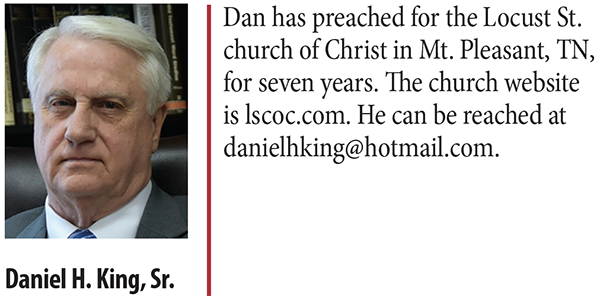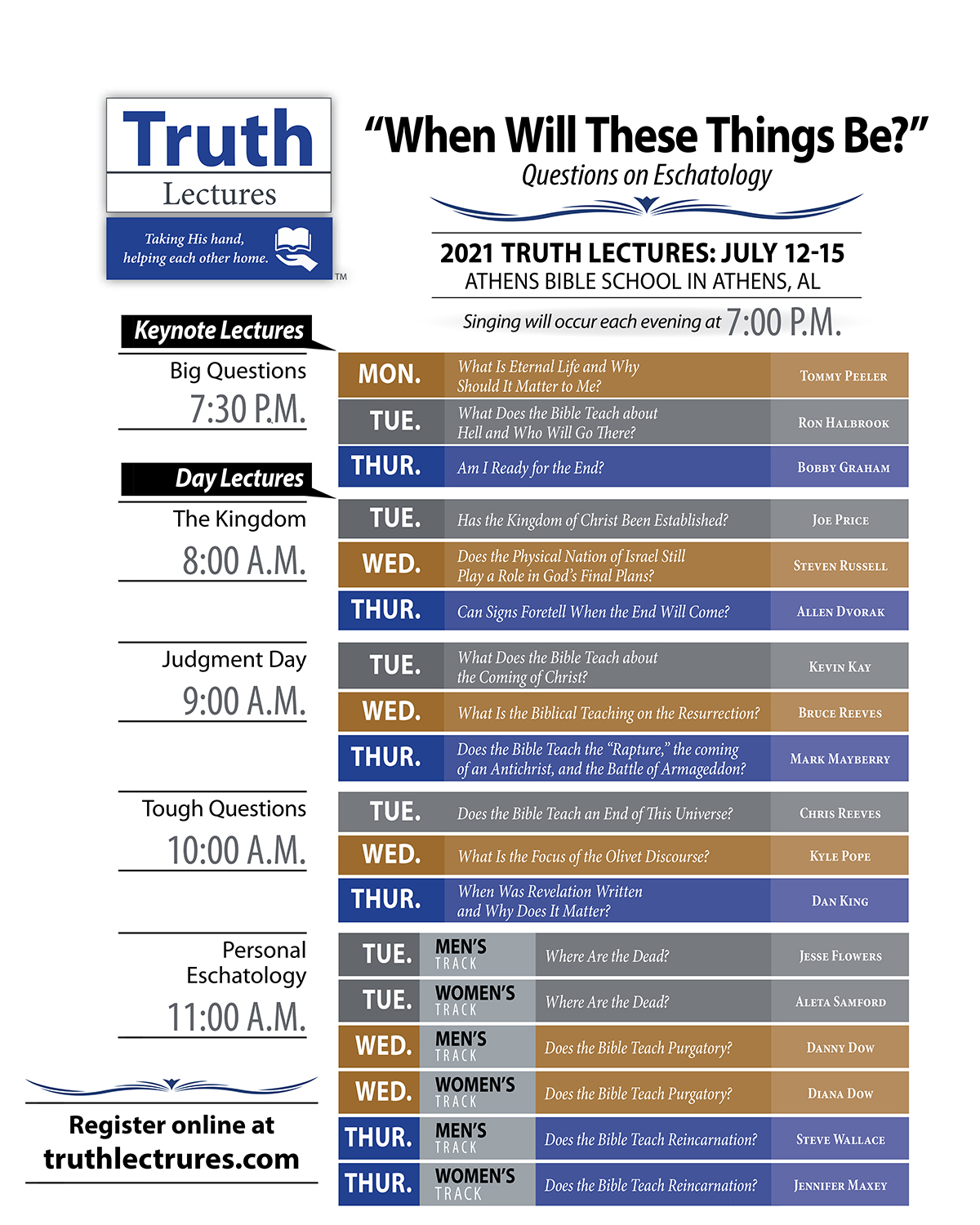by Daniel H. King, Sr.
Synopsis: We live in a perverse era in which absurdities are exalted as absolutes, and lunacy has become law. Paul’s pronouncement, “Professing themselves to be wise, they become fools!” has never been more applicable.
Conceptually speaking, progressivism assumes that history is linear and that we are therefore moving persistently toward a state of perfection in society. Formally, it is alluded to as Critical Theory, Social Justice, or Progressivism. Critical Race Theory has grown out of this approach to the problems associated with race relations.
In a sense, this whole phenomenon is a resurrection of the pre-World War I mentality that saw the world and human society as steadily evolving (that being the key term) toward a higher state. Evolution was the overarching concept of academia. These idealistic notions were borrowed from Charles Darwin, Karl Marx, and Friedrich Hegel. However, two world wars shattered that flimsy hypothesis. The horrors of war dispelled the notion that things were steadily improving toward the ultimate goal of human perfection. Worldwide warfare and the frightening destruction it wrought represented devolution rather than evolution!
Some have thought that progressivism should not be referred to in religious terms, or be seen as a religion per se, but rather be viewed as a philosophy in support of social reform. This is true because most people who embrace progressivism are opposed to religion, are usually associated with atheism, and self-identify as non-religious. They consider formal religion to be a means of oppression. Nevertheless, we understand that those who claim to have no religion, or are philosophically opposed to religion, are often deeply devoted to the religion of atheism. After all, what is religion anyway, except “that which gives life direction and meaning”? So, even though this religion does not involve “the service and worship of God or the supernatural, or devotion to religious faith and service,” it is inarguable that in this case it is “that which gives life direction and meaning” for those who follow its tenets. Thus, referring to it as “their religion” may not make these dedicated agnostics and atheists very happy with us, but it is quite clear that this is true despite their claims otherwise.
Dr. Kelly Burton has given a critique of Progressivism that alludes to it as a religion, even though she is reticent to outrightly describe it in those terms. She refers to Rod Dreher’s book, Live Not by Lies: A Manual for Christian Dissenters (2020), in which he has a chapter devoted to “Progressivism as Religion” that makes several important points: (1) Progressivism functions as a religion for those who are dedicated to its precepts. (2) Reason and rationality have been rejected within this movement. (3) It has thus shifted from rational to non-rational feelings or the will to power or power dynamics, and both have frequently been associated with religion. (4) Authority, a key aspect of religious praxis, in this case is invested in the self at times and in the state at other times. (5) Every religion has an idea about what the good life is, the human problem, and the solution to the human problem. Here the good life is about deconstruction of the current social order and reconstructing it based on liberation and empowerment of racial minorities. The human problem consists of oppression and unacknowledged privilege by Caucasians, and the solution is “wokeness,” acknowledgement and confession about how one has contributed to social oppression and a promise to work for social justice. (6) The state is the primary institution of human society that must be scrutinized for its own signs of oppression and then forced into the service of this new reality. (7) Religions all provide hope through some narrative about human destiny and the continuity of life beyond one’s mortal lifetime; through science and technology, it is believed that the all-powerful state will force compliance with progressivism’s goals, leading to societal utopia. (8) Every religious person uses the set of beliefs at the heart of the particular system to give their own lives significance; progressive beliefs are used thus by its adherents. On all these fronts, progressivism is indeed a religion. It is clear from what we have seen of it in action in the last few years, it is manifestly an anti-Christian religion as well.
A recent book by Helen Pluckrose and James Lindsay (2020) describes “How Activist Scholarship Made Everything About Race, Gender, and Identity.” Entitled Cynical Theories, it is a critique of the cult of social justice in the academy and in society generally. In recent years we have all been told things that seem ludicrous, but we are expected to accept them despite this: namely, that language is violence, science is sexist, mathematics is racist, science and reason are tools of oppression, obesity is good, criminals with dark skin should not be punished for their wrongdoing, jails should be abolished and emptied onto the streets, police departments should be defunded, only white people can be racist, all human interactions are sites of oppressive power play, there is no such thing as biological sex, there are many different sexual orientations that are healthy and acceptable, cancel culture is good, social-media bullying is healthy, etc. Logically all of these ideas are absurd and infeasible on the surface of them, but for the “social justice warriors” of our time they have become truisms, nevertheless. Attempts to reason with such people are futile because they have rejected reason as a measure of what is right and true. Only their baseless beliefs and twisted feelings matter.
Moreover, at this point in time they have become axiomatic on the popular media platforms and in “mainstream” journalism. “Wokism,” as it is popularly identified, is a mind-virus that is Marxist in nature, and destructive to the core. It may have started out among well-intentioned people who wanted to halt racism and social injustice, but in the real world it has led to tyranny, divisiveness, hatred, and destruction. Never mind the fact that all these ideas were born in radical activist scholarship and are alarmingly inconsistent and ethically illiberal. In fact, they challenge the very logic of Western society and are anti-Enlightenment in their orientation. Most of us ordinary folks consider this stuff stupid and vacuous. Unfortunately, the elitists who are pushing this foolishness hold the reins of power in Washington, DC at present, and in most universities and colleges their tenets are not subject to challenge. Anyone who dares to object risks loosing his job and being pilloried in the public media. His professional career may be over. Therefore, even though most people consider it all to be nonsense, they simply “shut up and obey” out of morbid fear. They adhere to the requirements of the woke mob, doing nothing that might attract attention to themselves and lead to their personal and professional cancellation. A few lonely voices have been heard to speak out against this hateful mob, but for most, publicly opposing progressivism has proven a route to career-ending suicide.
Eric Mason’s recent book, Woke Church: An Urgent Call for Christians in America to Confront Racism and Injustice, is solid evidence that this religious fascination has become front and center in the inner-city churches of America, especially where this new form of despotism has gained a foothold. Mason is founder and pastor of Epiphany Fellowship, a mega-church in Philadelphia. He defines being Woke as “no longer being naive nor in mental slavery. . . it is a term for being socially aware of issues that have systemic impact. . . it has to do with seeing all of the issues and being able to connect the socio-economic, philosophical, historical and ethical dots” (p. 25). He believes it is important for the Woke church to “Be in the business of doing something to stem the tide of injustice in our nation” (p. 133). It is his opinion that the evangelical (conservative and Bible oriented) churches of the US are asleep to the tensions related to race and injustice and in need of being “awakened” to the problems involved (p. 22).
We could not agree more with one African-American gentleman, who in his review of the book, wrote:
Justice is not the Christian’s focus. God has not called us Christians to ‘seek justice.’ Rather, he has called us to ‘make disciples.’ All the biblical data related to ‘Justice’ from man’s perspective are found in the OT and relate to the nation of Israel. The Church on the other hand (a.k.a. the body of Christ) is called to make disciples (Matt. 28) and wait on Christ who will one day make all things right (1 Thess. 1:10). As followers of Christ, we will never right the wrongs of this broken world, but what we can do is rescue as many perishing as possible (Jude 23). I’m sorry; Dr. Mason has this one wrong. We are not called to confront racism and injustice in order to fix them (not our job), we are called to confront the world with the Gospel (Mark 16).
This reviewer blames Mason’s Reformed Theology which believes everything in this world will be fixed before the Lord returns and that “Christ will return to a truly Christianized world.” However, the Bible does not teach either the postmillennialism of Dr. Mason or the premillennialism of the reviewer. Neither view is scriptural teaching.
Critical race theory has also entered the portals of many of the religious institutions of modern America. Churches and religious colleges and universities have many promoters of this perspective. It is important, therefore, that we understand where it came from and what its implications are.
Originally, the Marxist Left built its political program on the theory of class conflict. Marx taught that the primary characteristic of industrial societies was the imbalance of power between capitalists and workers. The solution to that imbalance, according to Marx, was a revolution on the part of the workers. They would seize the means of production, overthrow the capitalist class, and usher in a new socialist utopia. This movement never had much support in the US because of the massive middle class that was continually upwardly mobile; in a dynamic economy, they moved higher up the economic ladder and enjoyed greater success over time. Erosion of the middle class by wage stagnation in recent years has threatened this reality that has heretofore protected us from communism.
Critical race theory was developed as an academic discipline in the 1990s, on the intellectual framework of identity-based Marxism. In recent years, this Marxist ideology has been injected into governmental agencies, teacher-training programs, public school systems, corporate human resource departments, diversity-training programs, etc. The watchwords (euphemisms) of this divisive manner of speaking are: “equity,” “social justice,” “diversity and inclusion,” and “culturally responsive teaching.” In this manner of speaking about racial issues, the Declaration of Independence, the Civil Rights Act of 1964, the Voting Rights Act of 1965, etc., are all merely “camouflage” for white supremacy, patriarchy, and oppression of women, minorities, homosexuals, and transgenders.
What this Marxist ideology is aiming for is the overthrow of the present free market capitalist system: the end of private property rights, federalism, curtailment of the right of free speech, ending of equality under the law and establishment of group-based rights, weapons confiscation, redistribution of property and land on the basis of racial identities, and so forth. If these concepts were imposed on the people of this country, there is little doubt we would experience tremendous political upheaval and major disruption. Unfortunately, this ideology continues to make inroads into the major institutions and governmental agencies of our nation. The consequences of this could prove to be exceedingly dangerous. Christopher F. Rufo, a contributing editor of City Journal, said this in a lecture at Hillsdale College on March 30, 2021:
Thus far, attempts to halt the encroachment of critical race theory have been ineffective. There are a number of reasons for this:
First, too many Americans have developed an acute fear of speaking up about social and political issues, especially involving race. . .
Second, critical race theorists have constructed their argument like a mousetrap. Disagreement with their program becomes irrefutable evidence of a dissenter’s “white fragility,” “unconscious bias,” or “internalized white supremacy.”
Third, Americans across the political spectrum have failed to separate the premise of critical race theory from its conclusion. Its premise—that American history includes slavery and other injustices—is undeniable. But its revolutionary conclusion—that America was founded on and defined by racism and that our founding principles. . . should be overthrown—does not rightly, much less necessarily, follow.
Fourth, and finally, the writers and activists who have had the courage to speak out against it have tended to address it on the theoretical level, pointing out the theory’s logical contradictions and dishonest account of history. . . They fail to force defenders of this revolutionary ideology to defend the practical consequences of their ideas in the realm of politics (“Critical Race Theory. . .” Imprimis, p. 5).
It is our sincere hope that many of these ideas will die the death of most faddish notions, but the fact they have lingered for so long already seems to suggest we may be in for a long ride before they eventually disappear. Let us be praying. . .
Burton, Kelly. “Progressivism as Religion.” Clarity Fund (blog), January 20, 2021. https://clarityfund.org/progressivism-as-religion/.
Dreher, Rod. Live not by Lies: A Manual for Christian Dissidents. New York: Random House, 2020.
Lukianoff, Greg, and Haidt, Jonathan. The Coddling of the American Mind: How Good Intentions and Bad Ideas are Setting Up a Generation for Failure. New York: Penguin, 2018.
Mason, Eric. Woke Church: An Urgent Call for Christians in America to Confront Racism and Injustice. Chicago, IL: Moody Publishers, 2018.
Mitchell, Joshua. American Awakening: Identity Politics and Other Afflictions of Our Time. New York: Encounter Books, 2020.
Murray, Douglas. The Madness of Crowds: Gender, Race and Identity. New York: Doubleday, 2019.
Pluckrose, Helen, and Lindsay, James. Cynical Theories: How Activist Scholarship Made Everything about Race, Gender, and Identity-and Why This Harms Everybody. NC: Pitchstone Publishing, 2020.
Rufo, Christopher F. “Critical Race Theory: What It Is and How to Fight It.” Imprimis, Vol. 50, No. 5 (March, 2021), 1-5.
Trueman, Carl R. The Rise and Triumph of the Modern Self: Cultural Amnesia, Expressive Individualism, and the Road to Sexual Revolution. Wheaton, IL: Crossway, 2020.



